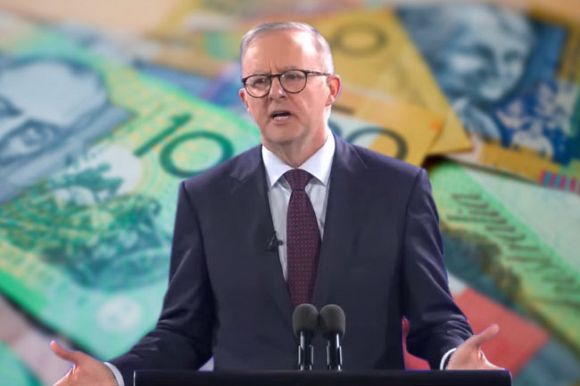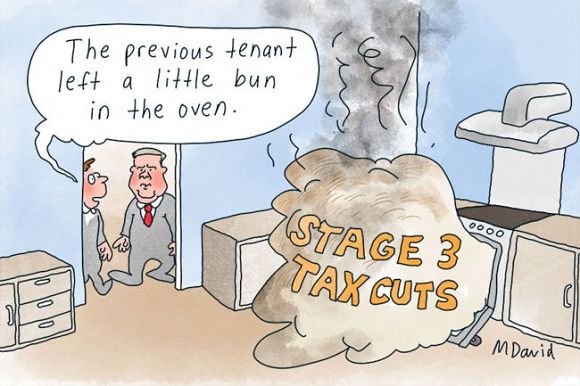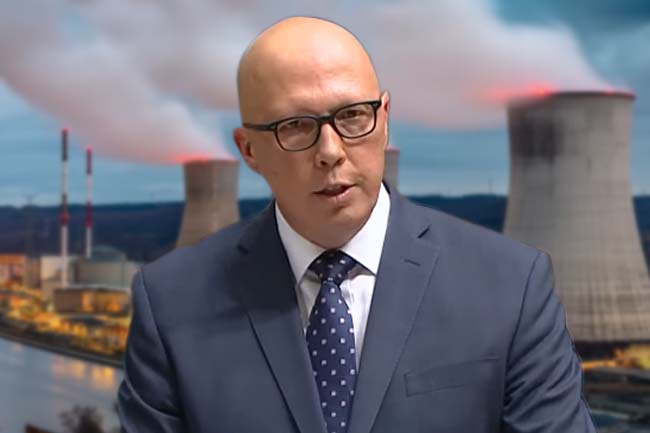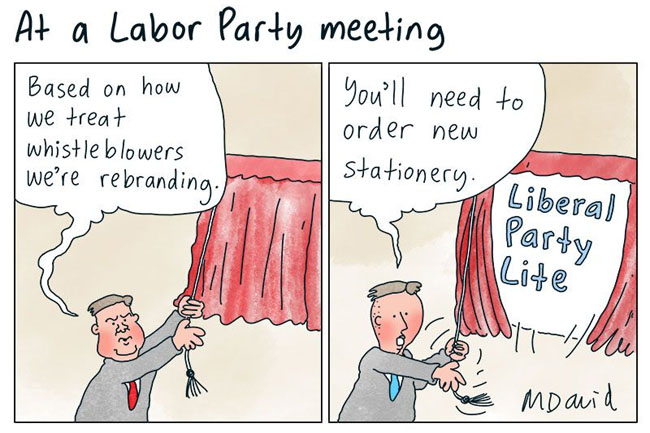Repealing the Stage 3 tax cuts won't be an easy task, presenting Anthony Albanese with a unique set of challenges, writes Professor John Quiggin.
AMONG THE MANY oddities of the Westminster system of government is the tradition that a newly elected Speaker of the Lower House must be dragged to the Chair with a show of reluctance. The tradition dates back to the days when the Speaker had to represent the views of the House to a king who could have them arbitrarily arrested and executed. Seven speakers were in fact beheaded between 1394 and 1535.
A similar situation is now emerging with the Stage 3 tax cuts. These cuts were legislated in 2018, as part of a three-stage program designed by then-Treasurer Scott Morrison. The first two stages were relatively modest sweeteners, aimed at low and middle-income earners. Stage 3, due to take effect in 2024-25, involved a massive cut in the marginal rate of taxation on high incomes, from 37 per cent to 30 per cent for incomes between $90,000 and $200,000.
Labor initially opposed Stage 3. However, after the 2019 Election defeat and unwilling to reject the modest benefits to middle-income earners incorporated in the package, Labor capitulated and voted in favour. Having gone this far, Prime Minister Anthony Albanese felt forced to guarantee that he would implement the cuts once in office. Labor’s supporters were soothed with the idea that the effects of the cuts could be reversed if Labor could gain a second term in office.
It was only after Labor’s election victory that attention was focused on the true awfulness of the cuts. Of the $184.2 billion the Parliamentary Budget Office believes Stage 3 will cost in its first seven years, $137.9 billion is directed to Australians on $120,000 or more. Given the gender inequity in Australian wages, men will get the great majority of the benefits.
But it is not just the unfairness of the cuts that matters. The crucial fact is the loss of revenue that can never be regained and will only grow over time. Those who want to distract attention to the cuts point to positive measures like a crackdown on international tax avoidance.
But such measures will yield a few billion at most. As long as the tax cuts stay on the agenda, Labor will be unable to deliver any significant benefits to its supporters. JobKeeper will stay below the poverty line, front-line health workers and others will suffer real wage cuts and crucial social needs will go unmet.
None of this will change if Labor wins a second or even a third term. The arguments that led Labor to swallow the tax cuts will work even more strongly against the massive tax increases needed to reverse them. If the cuts go through, former PM Scott Morrison will have won the policy debate, despite being repudiated by the voters.
But there is no reason to despair. The case for the tax cuts is as discredited as their author, Scott Morrison. Despite a string of articles attacking the cuts, no one from the L-NP has stepped forward to defend them; indeed, one MP, Russell Broadbent, has come out against them. The only person to advocate the cuts on the merits has been the reliably contrarian, if not nihilist, Guy Rundle at Crikey.
A move to defer or modify the cuts would have an easy ride through Parliament with the support of the Greens and of Independents including David Pocock and Jacqui Lambie.
Labor’s response has been equivocal. On the one hand, both PM Albanese and Treasurer Jim Chalmers have restated their promise. On the other, they have reminded questioners that Labor opposed the cuts and only went along with them because they were wedged by the way Morrison set the agenda.
The obvious inference is that, as with the mock-reluctant Speaker, Labor wants to dump the cuts but needs to be seen to be pushed. As Laura Tingle observed, the Prime Minister has this week made clear he is happy to let a consensus build that his position is completely untenable and maybe eventually force him to drop them.
The people who most need to understand this are “rusted-on” Labor supporters whose reflexive response is to defend the government position of the day. The more they defend the Government’s stated commitment to the tax cuts, the harder it will be to drop them.
The tax cuts were always a bad idea, but the economic crisis that has arisen from inflation, slow wage growth and shocks to energy markets have made the situation far worse. Labor should use its first budget in October as the basis for reorienting fiscal policy away from a handful of high-income earners and towards the needs of the great majority of Australians.
John Quiggin is Professor of Economics at the University of Queensland. His latest book, Economics in Two Lessons: Why Markets Work So Well, and Why They Can Fail So Badly, is out now from Princeton University Press. You can follow John on Twitter @JohnQuiggin.
Related Articles
 This work is licensed under a Creative Commons Attribution-NonCommercial-NoDerivs 3.0 Australia License
This work is licensed under a Creative Commons Attribution-NonCommercial-NoDerivs 3.0 Australia License
Support independent journalism Subscribe to IA.















